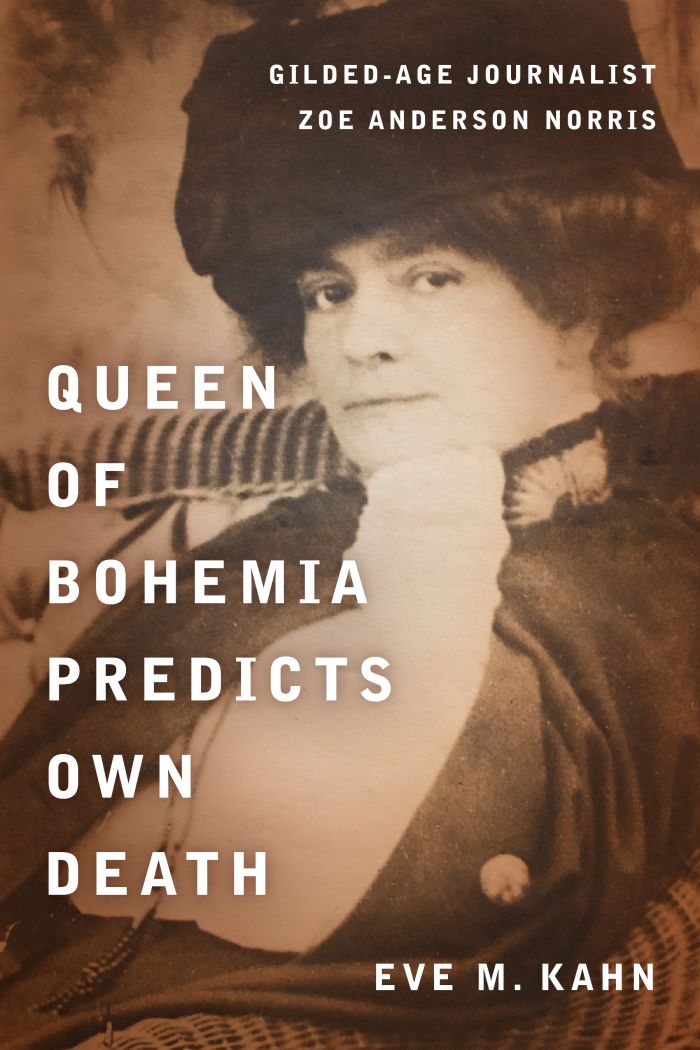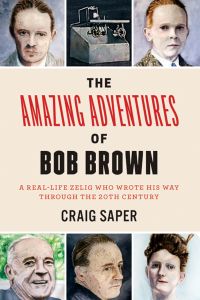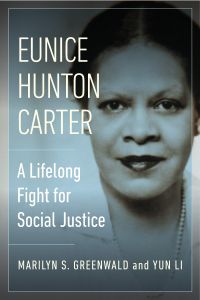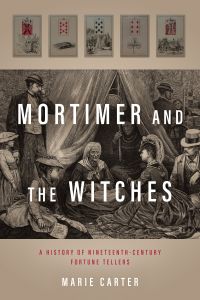Queen of Bohemia Predicts Own Death
Gilded-Age Journalist Zoe Anderson Norris

This book can be opened with

A trailblazing journalist who took on New York’s Gilded-Age injustices
Zoe Anderson Norris was a woman ahead of her time. A Kentucky-born belle turned fearless Manhattan journalist, she used her pen as a weapon in the fight for justice. From exposing slumlords and corrupt politicians to advocating for impoverished immigrants, she captured the injustices of her era with a wit and tenacity that still resonate today. In this first biography of Norris, independent scholar Eve Kahn restores her legacy, illuminating her work as a novelist, magazine publisher, and social reformer who challenged the powerful and gave voice to the oppressed.
A prolific writer and editor, Norris chronicled the struggles of Lower East Side immigrants in her self-published periodical, The East Side, often going undercover to report on the harsh realities of tenement life. She documented tragedies such as the Triangle Shirtwaist Factory Fire, publicly denounced predatory men, and advised women on seizing control of their destinies. With her bohemian spirit, she led the Ragged Edge Klub, a gathering of artists, writers, and social critics who rejected the status quo.
But Norris’s courage came at a personal cost. Her life was marked by tumultuous relationships, family estrangement, and battles against the very injustices she exposed. She endured financial struggles, unfaithful or deadbeat husbands, and social ostracization for her refusal to remain silent. In her final issue of The East Side, she eerily predicted her own death, an uncanny premonition that made national headlines before she faded into obscurity.
With meticulous research and captivating storytelling, Kahn brings Norris’s extraordinary life back into the spotlight. Drawing on newly uncovered archival materials, including Norris’s own writings, letters, and investigative reports, Queen of Bohemia Predicts Own Death sheds light on a fearless journalist whose influence on investigative reporting and social justice continues to be felt today. This biography is a compelling testament to the power of the written word in the fight for truth and equity.
Zoe wonderful! Queen of Bohemia is not just a woman writer writing about another woman writer, but a force of nature writing about another force of nature. Eve Kahn has gone down every conceivable rabbit hole to produce an astonishing and inspirational resurrection of Zoe Anderson Norris, one of the most captivating, empathetic, and prolific journalists of her era. I fell in love with Zoe after reading the magazine she produced. Lost no more, Zoe can now take her well-deserved and long overdue place in American literary history—Fanny Wright, Charlotte Perkins Gilman, Nellie Bly and Gloria Steinem, all rolled into one.—Steven Lomazow, M.D, co-curator/co-editor Magazines and the American Experience
Zoe Anderson Norris's indelible writings in defense of newly arrived immigrants, as brilliantly interpreted by Eve M. Kahn, have grown ever more relevant in this current period of great instability.—Allison Gilbert, co-author of Listen, World!: How the Intrepid Elsie Robinson Became America’s Most-Read Woman, winner of the Northern California Book Award
This deeply researched and beautifully illustrated biography brings a fascinating, complex figure back to life. Kahn’s nuanced page-turner does justice to Zoe Norris’s devotion to underdogs and her struggle for independence against constant social pressures. Kahn’s passion for this untold story (a passion which mirrors her subject’s) energizes every page of this vivid, empathic biography. Queen of Bohemia Predicts Own Death is both a compelling read and a gripping work of feminist recuperation.—Carla Kaplan, author of Troublemaker: The Fierce, Unruly Life of Jessica Mitford
Eve Kahn, a researcher of extraordinary tenacity, follows every lead to uncover the picaresque and forgotten life of Zoe Anderson Norris—a fiercely vocal, wildly uninhibited writer whose searing predictions and fearless protests against injustice have, until now, been lost to history. We owe Kahn a profound debt for restoring a voice that challenges long-held assumptions about gender roles at the turn of the 20th century. In riveting detail after riveting detail, Kahn reveals a character who demands to be known. How many other courageous women like Norris defied misogyny and dared to live boldly?—Marcia Ely, Brooklyn Public Library’s Center for Brooklyn History
A daring story told with exceptional verve. Zoe Anderson Norris wielded her pen as a trumpet on behalf of the underclasses. Eve Kahn wields her pen as a violin, playing an expansive song of this too-long-forgotten woman, a writer whose unbridled, fiercely principled life is exactly right for our moment.—Amy Reading, author of The World She Edited, Katharine S. White at The New Yorker
What a phenomenal subject is Norris, who turned every inch of her life experience—from Confederate Kentucky to New York’s Lower East Side—into fiction and reporting of irrepressible verve, variety, and truth. Worming her way into sites the press would rather forget, she gave voice to generations of struggling and striving New Yorkers and exposed miserly charities after the Triangle Shirtwaist fire. In Eve Kahn, Norris has a biographer worthy of her own virtuosity, an exacting, exuberant storyteller who gives Norris and old New York breath again.—Christine Cipriani, biographer of Ada Louise Huxtable (forthcoming, W. W. Norton) and coauthor of Cape Cod Modern: Midcentury Architecture and Community on the Outer Cape, winner of the Historic New England Book Prize
Incredibly well researched and extremely enjoyable. Kahn is a wonderful storyteller, whose narrative highlights the beauty and humor of Zoe’s prose.—Jennifer Putzi, William & Mary
Author Website
Prologue: Weep No More | xi
A Tribute to Enslaved People | xv
Methodology: Why Zoe, and How, and Why Me? | xix
Caption and Footnote Abbreviations | xxiii
Sibling Guide | xxv
1. A Sort of Waif, 1860–1873 | 1
2. Mineralogy and Constitutional Law, 1874–1878 | 13
3. Of the Best Families, 1878–1887 | 23
4. To Nourish the Temperament, 1887–1893 | 33
5. She Has a Halo, 1893–1895 | 41
6. Norris vs. Norris, 1896–1898 | 49
7. Beetles in Her Biscuits, 1898–1899 | 57
8. Champagne or Skyrockets, 1899–1900 | 65
9. A Wealthy Silk Merchant, 1900–1901 | 73
10. Sisters of Misery, 1901 | 79
11. Threat to Pretty Girl Novelist, 1902 | 89
12. The Useless Tears, 1902–1903 | 101
13. On the Rim of Manhattan, 1904–1906 | 107
14. Those Were Hungry Days, 1906–1907 | 121
15. That Great Uncertain Chasm, 1907–1909 | 129
16. Dear Children, 1909–1910 | 139
17. A Raggeder Edge than We, 1910–1913 | 159
18. The Best in the Land, 1910–1913 | 171
19. Lest They Fade from Affection’s Bliss, 1913–1914 | 191
20. Land of the White Lilies, 1914 | 199
21. To Break Through the Silence, 1914–2000s | 209
22. You Wouldn’t Believe What’s Going to Happen, 2018 Onward | 219
Acknowledgments | 231
Appendices | 235
Notes | 241
Selected Bibliography | 267
Index | 269




